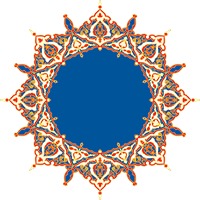
Sura al-Fajr
 89
89
Introduction of Surah
 Read More
Read More
 Show Less
Show Less
In the Name of Allah, the Most Compassionate, the All-Merciful
89:1. By the dawn,*
* It implies the daily dawn that dispels the darkness of the night, or the Morning Prayer, or particularly the first daybreak of the month of Dhu al-Hijja or the first dawn of Muharram or the ‘Id al-Adha morning. It also connotes the Holy Prophet Muhammad (blessings and peace be upon him), whose Prophethood brought the dawn of truth and faith and ended the darkness of ignorance and misguidance.
والفجر
(al-Fajr, 89 : 1)
89:2. and by the ten nights,*
* This verse can also refer to the last ten nights of the month of Ramadan, the period during which the Qur’an was first revealed. It may also refer to the first ten nights of Muharram or the first ten nights of Dhu al-Hijja, full of Allah’s bounties and blessings.
وليال عشر
(al-Fajr, 89 : 2)
89:3. and by the even and the odd,*
* The ‘even’ refers to all creation begotten in pairs, while the ‘odd’ implies the One, the Creator, Who has no equal. Some say that shaf ‘ connotes the ‘Day of Sacrifice’, and watr refers to the ‘the Day of ‘Arafat’ (during Hajj). Shaf ‘ may also refer to the days and nights of the worldly life, while watr may denote the Day of Resurrection. Shaf‘ also stands for all even nights of the year, while watr are all the blissful odd nights of the year, such as the night of al-Mi‘raj, the night of al-Bara’a, the night of al-Qadr, which come successively in the months of Rajab, Sha‘ban and Ramadan. Shaf‘ also points to the first couple, Adam and Hawwa’ (Eve [peace be upon both of them]), when together, whereas watr connotes Adam (peace be upon him) when alone because he was the origin of the human race. This verse may also refer to the prayers, most of which have an even number of cycles, whereas one of them, the sunset prayer, has an odd number. Some say the ‘even’ refers to Safa and Marwa, while the ‘odd’ refers to the Ka‘ba.
والشفع والوتر
(al-Fajr, 89 : 3)
89:4. and by the night when it departs!*
* It refers to every night in general, which indicates the Wisdom of Allah’s measuring between night and day. But, according to some scholars, it could be a specific reference to the night of the Hajj, when the pilgrims gather at Muzdalifa before moving to Mina. Others say it could refer to the Night of Power (Layla al-Qadr).

